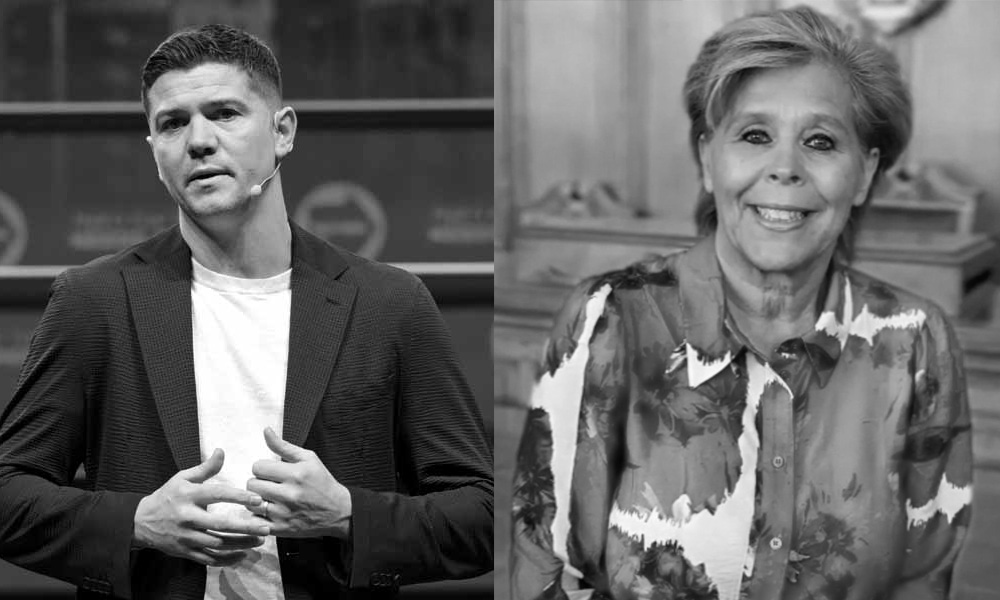EAST RIDING —As the mayoral race for Hull and East Yorkshire intensifies, a key question looms: will Reform UK’s national polling surge translate into real local momentum? For now, the answer remains uncertain.
But assuming it does, the more pressing question is this: can someone with no experience in local government realistically succeed in one of the region’s most complex political roles— seemingly on the basis of been a successful professional fighter? Or does the role demand a more professional hand—someone who already understands the intricate challenges ahead and can convene the alliances necessary to deliver a real return on the region’s devolution deal?
On 1st May Voters will decide, and hand over a £400M budget to one person, who then has to deliver for the region.
Riding The Death Star
To give some context to the scale of the challenge and speaking from my own time as a Committee Chair at East Riding Council, it took me over a year just to get a handle on the basics of delivery. We affectionately named County Hall “The Death Star” —its vast web of committees, paperwork and opaque processes is enough to drain even seasoned operators. And that’s before factoring in the trifles of personal agendas, political rivalries and the quiet resistance to change that runs through every department. My colleagues at Hull City Council say it’s no different. Add in local business interests, central government initiatives and inevitable difficulties of associated with infrastructure and investment projects, its a complex and unwilling beast to tame. The idea that anyone—no matter how accomplished in another field—could step into this role and immediately deliver results underestimates just how intricate, sluggish, and politically charged the local government environment really is. The learning curve isn’t just steep—it’s near vertical.
This is a brand-new role. If it stumbles out of the blocks, the risk is real: lost momentum, lost investment, and lost public confidence in the entire devolution project.
It’s hard to see how someone new to all that—however determined and astute—could operate effectively any time soon after their election.
And that matters. This is a brand-new role. If it stumbles out of the blocks, the risk is real: lost momentum, lost investment, and lost public confidence in the entire devolution project.
I say all this with absolute respect for Luke Campbell. Unlike some local political analysis, my criticism isn’t personal. It’s been pointed out that he’s ‘not a politician’, ‘does not have the right language’, and ‘doesn’t even smile like the other politicians’. They say this as if it disqualifies him—when in fact, that’s precisely the point to Reform minded voters.
In a field of Council veterans, Campbell doesn’t talk like an official. He doesn’t dress like one, and his language is jargon free. He isn’t part of the same club—and for many people, especially those tired of status quo politics, that’s the entire USP.
It’s nonsense to argue that Campbell’s run for mayor undermines his Olympic legacy. That argument says more about the gatekeeper than the challenger.
It’s faintly patronising to suggest that someone who has reached the pinnacle of global sport lacks the discipline or focus for public leadership. In that context, none of Luke’s critics come close to his achievements and he can rest easy in their comparisons.
And for Reform voters in particular, these criticisms are not deterrents—they’re rallying cries. If Brexit taught us anything, it’s that wheeling out the “great and good” to defend the establishment doesn’t protect it—it provokes it, driving more voters to Reform and having the opposite effect intended.
A Campbell mayoralty may seek to take aim at those issues better than other candidates who carry the overhead of ‘managing officer relations’. Luke may feel free of those obligations to keep staff motivated and be more willing to ask the uncomfortable questions.
Back to the Mayoralty. People with long memories inside both East Riding and Hull City Council know the truth: while there’s no corruption, there is deep inefficiency. Low productivity. Council staff who haven’t been seen in the office in weeks. Projects with sky-high costs and questionable outcomes. Pet projects approved where the public benefit is hard to measure.
A Campbell mayoralty may seek to take aim at those issues better than other candidates who carry the overhead of ‘managing officer relations’. Luke may feel free of those obligations to keep staff motivated and be more willing to ask the uncomfortable questions. Why are housing repairs three times the private cost? Why are thousands spent on abstract frameworks while core services struggle? Why does council tax go up by 4.99%—just under the referendum threshold—every single year?
A Mayor Campbell could be a sledgehammer through the bureaucracy. If nothing else, he could shift the culture towards value, outcomes and accountability. That’s not nothing—and it helps explain why his campaign is resonating.
But here’s the reality check
The Mayor doesn’t run Hull City Council or East Riding. They don’t set council tax. They don’t control housing, or social care, or bins.
Luke has yet to show he has all of the political skills which will define the role.
What the Mayor does have is influence. A voice. And the power to steer funding in key devolved areas—transport, regeneration, adult skills.
To make that influence count, the Mayor must build coalitions—between a Labour government, a Lib Dem-run Hull, a Conservative-run East Riding, and the machinery of Whitehall. That doesn’t require a hammer. It requires precision. Tact. The kind of political judgement that only comes with time and experience. Luke has yet to show he has all of the political skills which will define the role.
Handley in particular as the local lead and driving force for the devolution deal already has here sleeves rolled up at a regional level and would undoubtably be making decisive decisions from day 1.
So this is where the wheels may come off the Reform mayoral project, and the impact on the devolution project and the wider region be extremely adverse. It’s one thing to identify dysfunction. It’s another to untangle it and replace it with something better. That requires a true fixer who doesn’t just find faults, but can sort them out. Anything less would be a lost opportunity instead of the new future currently on offer.
Candidates like Anne Handley (Conservative) and Mike Ross (Liberal Democrat) understand how the system works. They’ve lived in it. They know who to call. They know what levers exist—and more importantly, how to pull them.
Handley in particular as the local lead and driving force for the devolution deal already has here sleeves rolled up at a regional level and would undoubtably be making decisive decisions from day 1.
Labour’s Margaret Pinder is a serious candidate, who may also have fixer instincts —but her experience in office is limited. And this is a role where direct experience matters.
Will it be Luke or London calling the shots?
Campbell’s bond with Hull is real and cannot be manufactured. His roots and local standing are authentic. But if he wins, the reality is that his mayoralty will be shaped—perhaps even directed—by Reform’s party machine in London.
That raises an awkward irony. A mayoral project built on the idea of localism and decentralisation could end up operating under the influence of Millbank HQ
That raises an awkward irony. A mayoral project built on the idea of localism and decentralisation could end up operating under the influence of Millbank HQ. In trying to take power back from Westminster, we may just end up handing it to a different part of it.
The Mayor should be our voice to London—not London’s voice to us.
Not a protest role
This isn’t a protest role. It’s an executive one—about coordination, delivery, and forging unlikely alliances. Luke Campbell may raise the right questions. He may well shake the system, and in doing so, expose inefficiencies that others have grown too comfortable to challenge. But beyond that, it’s hard to see how he delivers. The learning curve would be steep, the early months potentially wasted, and the danger—genuine—that the opportunity for change be lost before anything substantial is achieved.
His likely reliance on direction from Reform’s London headquarters only deepens that concern, especially for a role meant to symbolise local empowerment.
Campbell is a good man with sincere intentions. But the job of Mayor is not one you can grow into—it’s one that demands fluency from day one. Hull and the East Riding need someone who can make the system work, not simply rage against it.
At this moment, experience isn’t just preferable—it’s essential. And a vote for Luke, however well-meaning, could mean a vote for delay, disruption, and ultimately disappointment.


